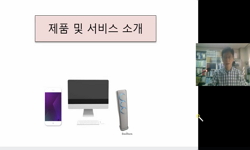Production planning is a key part of production management of manufacturing enterprises. Since computerization began, modern production planning has been developed starting with Material Requirement Planning (MRP), and today Enterprise Resource Planni...
http://chineseinput.net/에서 pinyin(병음)방식으로 중국어를 변환할 수 있습니다.
변환된 중국어를 복사하여 사용하시면 됩니다.
- 中文 을 입력하시려면 zhongwen을 입력하시고 space를누르시면됩니다.
- 北京 을 입력하시려면 beijing을 입력하시고 space를 누르시면 됩니다.



Development of production planning system for shipbuilding using component-based development framework
한글로보기https://www.riss.kr/link?id=A107798462
-
저자
Cho Sungwon (Daewoo Shipbuilding and Marine Engineering) ; 이종무 (서울대학교) ; 우종훈 (서울대학교)

- 발행기관
- 학술지명
- 권호사항
-
발행연도
2021
-
작성언어
English
- 주제어
-
등재정보
KCI등재,SCIE,SCOPUS
-
자료형태
학술저널
-
수록면
405-430(26쪽)
-
KCI 피인용횟수
0
- DOI식별코드
- 제공처
-
0
상세조회 -
0
다운로드
부가정보
다국어 초록 (Multilingual Abstract)
Production planning is a key part of production management of manufacturing enterprises. Since computerization began, modern production planning has been developed starting with Material Requirement Planning (MRP), and today Enterprise Resource Planning (ERP), Advanced Planning and Scheduling (APS), Supply Chain Management (SCM) has been spreading and advanced. However, in the shipbuilding field, rather than applying these general-purpose production planning methodologies, in most cases, each shipyard has developed its own production planning system. This is because the applications of general-purpose production planning methods are limited due to the order-taking industry such as shipbuilding with highly complicated construction process consisting of millions of parts per ship. This study introduces the design and development of the production planning system reflecting the production environment of heavy shipyards in Korea. Since Korean shipyards such as Hyundai, Daewoo and Samsung build more than 10 ships per year (50e70 ships in the case of large shipyards), a planning system for the mixed production with complex construction processes is required. This study draws requirements using PI/BPR (process innovation and business process reengineering) methodology to develop a production planning system for shipyards that simultaneously build several ships. Then, CBD software development methodology was applied for the design and implementation of planning system with drawn requirements. It is expected that the systematic development procedure as well as the requirements and functional elements for the development of the shipyard production planning system introduced in this study will be able to present important guidelines in the related research field of shipbuilding management.
참고문헌 (Reference)
1 Hopp, W. J., "To pull or not to pull: what is the question?" 6 (6): 133-148, 2004
2 Koenig, P. C., "The national shipbuilding research program. 1997 ship production symposium, paper number 16: towards a generic product-oriented work breakdown structure for shipbuilding"
3 Kruchten, P. B., "The 4þ 1 view model of architecture" 12 (12): 42-50, 1995
4 Bititci, U. S., "Strategic management of the manufacturing value chain" Springer 2-, 2013
5 Lee, Y. G., "Simulation-Based planning system for shipbuilding" 1-16, 2020
6 Choi, H. S., "Shop-Floor scheduling at shipbuilding yards using the multiple intelligent agent system" 8 (8): 505-515, 1997
7 Zhuo, L., "Scheduling dynamic block Assembly in shipbuilding through hybrid simulation and spatial optimisation" 50 (50): 5986-6004, 2012
8 SeungHoon Nam, "SCP-Matrix based shipyard APS design: Application to long-term production plan" 대한조선학회 10 (10): 741-761, 2018
9 Beeri, C., "Readings in Artificial Intelligence and Databases" Elsevier 468-479, 1989
10 Matoba, H., "Production planning system"
1 Hopp, W. J., "To pull or not to pull: what is the question?" 6 (6): 133-148, 2004
2 Koenig, P. C., "The national shipbuilding research program. 1997 ship production symposium, paper number 16: towards a generic product-oriented work breakdown structure for shipbuilding"
3 Kruchten, P. B., "The 4þ 1 view model of architecture" 12 (12): 42-50, 1995
4 Bititci, U. S., "Strategic management of the manufacturing value chain" Springer 2-, 2013
5 Lee, Y. G., "Simulation-Based planning system for shipbuilding" 1-16, 2020
6 Choi, H. S., "Shop-Floor scheduling at shipbuilding yards using the multiple intelligent agent system" 8 (8): 505-515, 1997
7 Zhuo, L., "Scheduling dynamic block Assembly in shipbuilding through hybrid simulation and spatial optimisation" 50 (50): 5986-6004, 2012
8 SeungHoon Nam, "SCP-Matrix based shipyard APS design: Application to long-term production plan" 대한조선학회 10 (10): 741-761, 2018
9 Beeri, C., "Readings in Artificial Intelligence and Databases" Elsevier 468-479, 1989
10 Matoba, H., "Production planning system"
11 Tamaki, K., "Production planning system"
12 Ishibashi, H., "Production planning method and production planning system"
13 Ennis, K. J., "Product-Oriented design and construction cost model" 14 (14): 41-58, 1998
14 Okayama, Y., "Product work breakdown structure"
15 Park, J., "Oocbd based process management system design for engineering collaboration" 2008
16 Park, K., "Modeling and solving the spatial block scheduling problem in a shipbuilding company" 30 (30): 357-364, 1996
17 Joseph, O., "Material requirements planning" McGraw-Hill 1975
18 Roh, M. I., "Generation of production material information for a building block and simulation of block erection for process planning and scheduling in shipbuilding" 45 (45): 4653-4683, 2007
19 Leopold, R., "Gas turbines in the us Navy: analysis of an innovation and its future prospects as viewed by a ship designer" 87 (87): 98-108, 1975
20 Umble, E. J., "Enterprise resource planning: implementation procedures and critical success factors" 146 (146): 241-257, 2003
21 Woo, J. H., "Development of simulation framework for shipbuilding" 31 (31): 210-227, 2018
22 Ryu, C., "Development of integrated and interactive spatial planning system of assembly blocks in shipbuilding" 21 (21): 911-922, 2008
23 Lee, J. M., "Development of an evaluation framework of production planning for the shipbuilding industry" 31 (31): 831-847, 2018
24 Lee, J. K., "Developing scheduling systems for Daewoo shipbuilding : das project" 97 (97): 380-395, 1997
25 Lee, J. K., "Das : intelligent scheduling systems for shipbuilding" 16 (16): 78-78, 1995
26 Chaudron, M., "Component-based development process and component lifecycle" 13 (13): 321-327, 2005
27 Porter, M. E., "Competitive advantage of nations: creating and sustaining superior performance" simon and schuster 2011
28 Andersen, B., "Business process improvement toolbox" Quality Press 2007
29 Kettinger, W. J., "Business process change: a study of methodologies, techniques, and tools" 55-80, 1997
30 Gorton, I., "An Architects guide to enterprise application integration with J2ee and" 2005
31 Cho, K., "A spatial scheduling system for block painting process in shipbuilding" 50 (50): 339-342, 2001
32 Park, C., "A spatial scheduling application at the block paint shop in shipbuilding: the hypos project" 13 (13): 342-354, 2002
33 Woo, J. H., "A research on simulation framework for the advancement of supplying management competency" 33 (33): 60-79, 2017
동일학술지(권/호) 다른 논문
-
Interaction of turbulences with non-breaking divergent waves in an open channel
- 대한조선학회
- Hwang Ayoung
- 2021
- KCI등재,SCIE,SCOPUS
-
Performance of a hydrofoil operating close to a free surface over a range of angles of attack
- 대한조선학회
- Ni Zao
- 2021
- KCI등재,SCIE,SCOPUS
-
- 대한조선학회
- Park Seung Hyeon
- 2021
- KCI등재,SCIE,SCOPUS
-
- 대한조선학회
- Yu Jin-Won
- 2021
- KCI등재,SCIE,SCOPUS
분석정보
인용정보 인용지수 설명보기
학술지 이력
| 연월일 | 이력구분 | 이력상세 | 등재구분 |
|---|---|---|---|
| 2023 | 평가예정 | 해외DB학술지평가 신청대상 (해외등재 학술지 평가) | |
| 2020-01-01 | 평가 | 등재학술지 유지 (해외등재 학술지 평가) |  |
| 2013-10-01 | 평가 | SCIE 등재 (등재유지) |  |
| 2011-01-01 | 평가 | 등재후보학술지 유지 (기타) |  |
| 2009-01-01 | 평가 | SCIE 등재 (기타) |  |
학술지 인용정보
| 기준연도 | WOS-KCI 통합IF(2년) | KCIF(2년) | KCIF(3년) |
|---|---|---|---|
| 2016 | 0.56 | 0.18 | 0.54 |
| KCIF(4년) | KCIF(5년) | 중심성지수(3년) | 즉시성지수 |
| 0.49 | 0.47 | 0.475 | 0.04 |




 ScienceON
ScienceON





